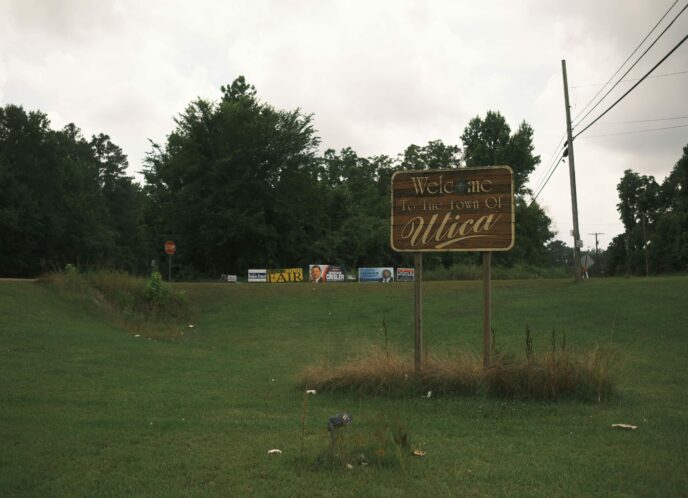Billions of federal dollars for expanding high-speed access in Mississippi are waiting for the state to decide when and where they’ll be invested to close the digital divide statewide. Meanwhile, the most disconnected communities in the country are in rural, historically Black Mississippi counties, yet Internet Service Provider (ISP) maps would have us believe these areas are covered and served by their best-quality high-speed internet. Team MediaJustice knows this isn’t true, and we also know that the solutions can be found by simply listening to the experiences of the Black Mississippians working, connecting, and surviving the digital divide. MediaJustice National Field Organizer Brandon Forester recently spoke to Mississippi Today about what he learned from collecting and sharing stories of the digital divide from Utica, Mississippi. Read the full article here. Read the report submitted to the State of Mississippi on behalf of the residents of Utica here on our site.
Forester said he relied on the power of storytelling to detail the barriers and solutions to broadband access as identified by the experiences of residents of Utica.
“The report was to say these people exist. They’re 45 minutes down the road from the Capitol. These people are completely disconnected. And the state doesn’t even realize it.”
“(MediaJustice) is trying to help people figure out how to organize their resources because it may not be that the right internet solution for one area is the same as it is for another neighborhood. It’s not about us saying this is the best thing for someone, but it’s about a community being able to make choices regarding how technology shows up for them.”


